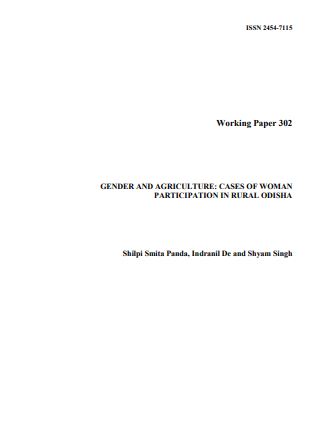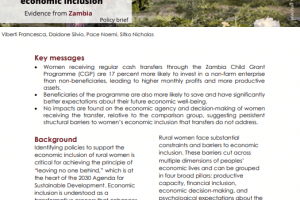Gender-based division of labour in agriculture assigns a subordinate role to women cultivators and labourers. These roles are sustained by various collective practices and behaviours. Based on Bicchieri (2006) Social Norms Framework the study identifies various behaviours as customs, moral norms, descriptive norms, and social norms. The study is conducted in one irrigated and one non-irrigated multi-caste village of Odisha. This study adopted the case study and in-depth interview method to collect data from 76 working and non-working women. The cases were analysed based on the Social Norms Framework. It was found that tribal women were hired as agricultural labourers with lower wages. Higher caste women worked supporting labour in family farms sans wages. Women had no say in decisions related to the purchase of crops and fertilisers. They were involved in all work aspects except ploughing. Tribal women were more privileged in terms of household decisions, irrespective of men, in matters like children’s health, education, and household consumption.
Gender and Agriculture: Cases of Woman Participation in Rural Odisha





Add Comment